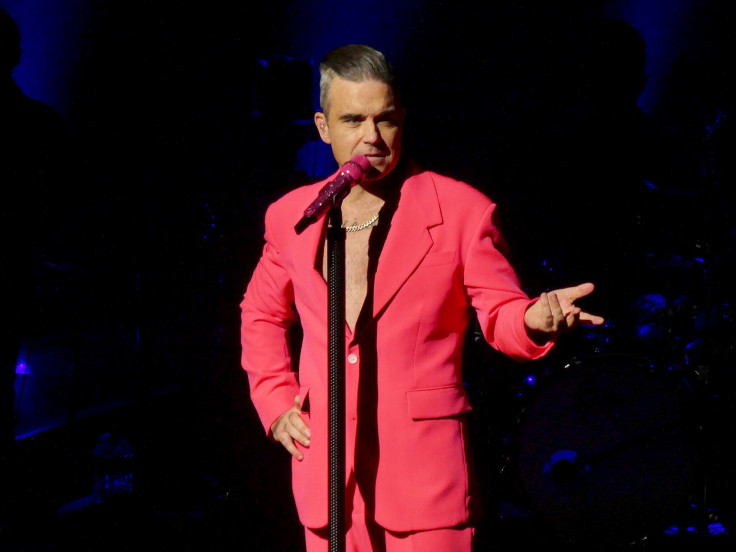What Is Tourette Syndrome: Causes, Symptoms and Treatment of Robbie Williams' Latest Diagnosis
Pop star opens up on neurological struggles, intrusive thoughts and coping with live performances

Pop icon Robbie Williams made a shocking declaration about a neurological condition that made him an 'Olympian at masking.'
During his guesting on the podcast, 'I'm ADHD! No You're Not' hosted by Welsch funnyman Paul Whitehouse and neuroscience specialist Dr Mine Conkbayir, the former Take That member said that he experiences 'inside Tourette's' symptoms.
'I've just realised that I have Tourette's, but they don't come out,' he explained. 'I was just walking down the road the other day and I realised that these intrusive thoughts are "inside Tourette's".'
'Not only that, you would think that a stadium full of people professing their love to you would work as a distraction, but whatever it is inside me cannot hear it. I cannot take it in,' he added.
Williams also admitted that he was 'always looking for a cure' to help him deal with his condition.
The Truth About Tourette Syndrome
The NHS described Tourette syndrome as a condition that makes people who have it make sudden, repetitive involuntary movements or sounds, also known as tics.
Sound tics may include randomly making animal sounds, repeating a tone, word or phrase, whistling, sniffing or clearing the throat multiple times. It may also cause them to swear impulsively.
Meanwhile, movement tics could be categorised by spontaneous blinking or rolling of the eyes, jumping, tensing the stomach muscles, twitching or jerking and shoulder shrugging.
The tics come out if the person is stressed, tired or excited.
The health authority also noted that Tourette syndrome is more prevalent in boys than girls, and the symptoms usually appear around the age of six. It may become more noticeable when the patient reaches the age of ten.
Tourette Diagnosis
GPs suspect that a person may have this condition if their tics come out before they reach the age of 18 and occurring for a year or more.
The doctors would also ask if someone from the family had been diagnosed with other neurological conditions before, like ADHD or OCD.
If a person possesses most of the symptoms, they will be referred to a neurologist or a paediatrician for further assessment. They may request for several tests, including MRI scan, EEG or a blood test to determine if the tics are caused by Tourette syndrome or if the patient has other conditions.
At the moment, health experts have yet to find a cure for this neurological condition. But treatments could help if the tics already affect the patient's quality of life.
Some of the treatments include behavioural therapy for managing the tics. Doctors may also prescribe medicines if the therapy is ineffective.
How Williams Copes Up
The singer, who started his latest Britpop tour in May, also talked about his other mental health issues and the challenges in live performances during the podcast.
He previously admitted that he is also dealing with a range of neurodiversity, including PTSD, anxiety, and ADHD.
The 'Everything Changes' singer claimed that he opted to do things differently for his current tour.
'I have a very complicated relationship with touring and performing live. People say: "Oh, you going on tour? You must be really, really excited." Not really. I'm terrified,' he confessed.
'It's getting better. I would say it's gotten better from 45 onwards. This particular tour that I'm now in, I'm very pleased to say, for me, is that I'm dead excited to do my show that I'm doing tomorrow and I was excited to do one last week.'
© Copyright IBTimes 2025. All rights reserved.




















